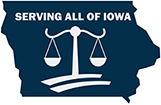- Charles City Motorcycle Accident Injury Attorneys
- Phone: 641-792-3595
- Directions
In times of misfortune, motorcycle injury lawyers become unwavering supporters for riders. Their expertise in motorcycle accident cases allows them to proficiently handle legal complexities and secure justice and compensation for injured riders.
Riding a motorcycle comes with a unique sense of freedom, but it also demands heightened awareness and safety. Whether you’re dealing with aggressive drivers, navigating age-related licensing restrictions, or avoiding common accidents, staying informed is crucial. In this guide, we combine expert advice on motorcycle safety, Iowa’s licensing laws, and tips to prevent accidents to keep you safe on the road.
Dealing with Aggressive Drivers
Recognizing Aggressive Behavior
Aggressive drivers are a significant hazard to motorcyclists, often tailgating, yelling, or driving recklessly. Their actions can escalate quickly, putting riders at risk of serious accidents.
How to Stay Safe:
1. Don’t Respond to Road Rage
Avoid engaging with aggressive drivers. Yelling back or making gestures can escalate the situation. Instead, maintain your composure and distance.
2. Move Over if Being Tailgated
Tailgating is a common form of aggression. If a driver is following too closely, change lanes and let them pass. Resist the urge to retaliate by slowing down further, as it can increase danger.
3. Report Dangerous Drivers
If you feel threatened, pull over to a safe location and report the driver.
4. Practice General Safety Measures
Always wear a helmet, carry a motorcycle safety kit, and remain alert for unpredictable behaviors.
Age Restrictions for Operating a Motorcycle in Iowa
In Iowa, age and licensing regulations aim to ensure motorcyclists have the skills to ride safely.
Licensing Stages:
1. Motorcycle Instruction Permits (Ages 14–17)
- Riders must obtain a permit to practice under supervision.
- Supervision requires a licensed parent, guardian, or adult with a motorcycle endorsement.
2. Intermediate Motorcycle License (Ages 16–17)
- Riders must hold an instruction permit for six months, log 20 hours of riding (including two hours at night), and have parental permission.
- Restrictions: No riding between 12:30 a.m. and 5:00 a.m. without proper supervision, except for school-related activities.
3. Full Motorcycle License (Age 17 and Older)
- Riders qualify after holding an intermediate license for one year and completing 10 additional riding hours.
Mandatory Safety Course for Riders Under 18
Young riders must complete a Motorcycle Safety Foundation-approved course with five hours of in-class training and 10 hours of range activities. Skills taught include:
- Straight-line riding
- Turning and shifting
- Stopping safely
Avoiding Common Motorcycle Accidents
Despite the risks, many motorcycle accidents are preventable with proper techniques and vigilance. Below are eight common accidents and strategies to avoid them:
1. Drinking and Driving
- Prevention: Never drink and ride. Alcohol impairs balance, coordination, and reaction time—critical skills for motorcyclists.
2. Cars Turning Left at Intersections
- Prevention: Slow down and stay alert for turning vehicles. Look for signs like wheels turning or drivers checking traffic. Avoid ""laying the bike down""; instead, brake fully while upright.
3. Gravel in Blind Corners
- Prevention: Enter curves wide and at a controlled speed. Keep your eyes on the road and be prepared to adjust for loose gravel or debris.
4. Entering Corners Too Fast
- Prevention: Use visual clues like road signs to gauge sharp turns. If caught off guard, trust your bike’s capabilities and stay calm to navigate the turn.
5. Cars Changing Lanes into You
- Prevention: Stay out of blind spots and watch for signals that a driver might switch lanes, such as turn signals or sudden swerving.
6. Rear-End Collisions at Intersections
- Prevention: Stop at the side of the lane rather than the center, flash your brake lights, and stay in gear for quick evasive action if necessary.
7. Careless Group Riding
- Prevention: Ride in staggered formation, maintaining sufficient space to avoid chain-reaction accidents.
8. Locking the Front Brake
- Prevention: Practice braking in an empty lot to master using the front brake effectively without losing control.
When Accidents Happen
Even with all precautions, accidents can occur. If you or a loved one is involved in a motorcycle accident:
1. Seek medical attention immediately.
2. Document the scene and gather witness information.
3. Consult an attorney to explore your legal options. "
Consulting a Motorcycle Accident Attorney
The toll from severe motorcycle injuries can encompass substantial medical expenses and long-term care costs for victims and their families. Lost wages may compound matters, especially if employment becomes unrealistic for an extended period. Getting help from a motorcycle accident attorney allows the pursuit of comprehensive compensation, from financial damages and emotional distress such as pain and suffering.
Victims of these accidents should seek consultation with a motorcycle accident attorney, as damages may be extensive and recovery of compensation is important.
At Walker, Billingsley & Bair, our motorcycle accident attorneys can represent you in dealings with your insurance company, or when filing a personal injury claim. Set up your consultation now by calling 641-792-3595.

